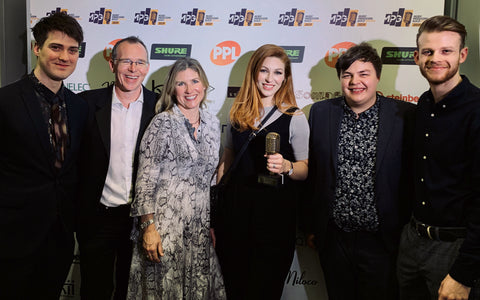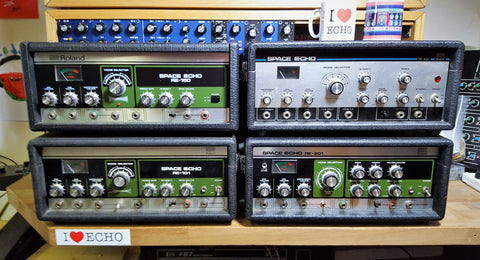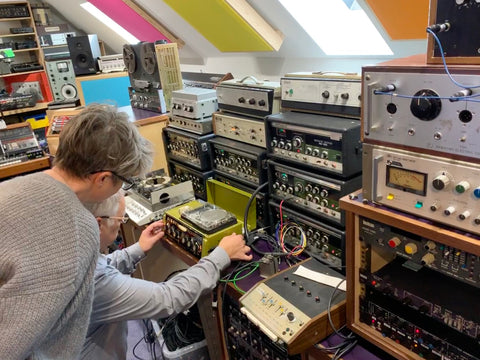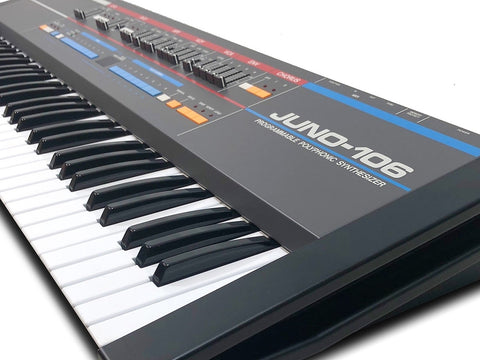Korg Stage Echo or Roland Space Echo?
This page follows on from our introduction to Korg Stage Echoes and also our Roland echo pages. It will help you decide between which Roland or Korg tape delay model will be best for you. Note that this page is a work in progress and needs more video; if you are looking to buy a vintage tape echo and want to discuss which is best for you then please get in touch.
So why would I choose a Stage Echo over a Space Echo, and what are the main differences between the Korg and Roland machines? Below I list a few questions that point towards which machine might be most suitable for you.

Do you want a classic delay/reverb that’s been heard on countless recordings from the early seventies onwards?
If yes, you most likely want a Roland RE-201 Space Echo (or if your budget is tighter and you can live without the spring reverb, the RE-101). The RE-150 has no spring reverb and only two replay heads (as opposed to the 201/101’s three), but they have a great sound and are a good option to get the Roland Space Echo sound on a tighter budget.
If you want a classic delay/reverb, but also yearn for Roland Chorus and the sound on sound (but are not looking for classic dub delay patterns), then the Roland RE-301 could be for you. The head spacings are different on the 301 (compared to to the 201), so while dub aficionados may find it less-gratifying, guitarists and keyboard players love the less-common 301. I bought my 301 from Dave Formula of Magazine: it was used on several of their albums (and on the Visage albums) - you can see it behind Dave on the cover of Magazine’s live album, ‘Play’.
Are you looking for a cleaner, more high fidelity sound to your repeats? If you are, then the choice is between the Korg Stage Echoes or a Roland RE-501 Chorus Echo (or SRE-555 which is simply a 501 in rack format). The later Rolands incorporated a noise reduction system (as well as chorus, sound on sound and of course spring reverb) which made them sound a good deal cleaner. I’ve always thought of them as being the Roland Echo to buy if you like the sound of the late seventies or early eighties (a strat through an RE-501 gets you pretty close to the sound of Andy Summers of The Police or David Gilmour on Pink Floyd’s The Wall). I used two very clean 501s in my studio for many years as my main go-to guitar/synth echoes, partially because they worked faultlessly, but also because they seemed to just sound ‘right’ whenever we used them. I’ve latterly grown more fond of RE-201s (and eventually sold my last 501 when I bought Dave’s 301); this is down to just how good they sound when they’re less-worn and well-serviced. The Roland RE-501/SRE-555 and the Korg SE-500 also feature balanced inputs/outputs for studio use.
If you are after a cleaner sound (and chorus/spring reverb aren’t essential), and you also want longer delay times, and the ability to control the delay time via control voltage (CV) from your synth, modular system, or a control pedal, then the Korg SE-500 is your machine. Or for a cleaner sound with spring reverb (but no sound on sound), then you want to try the SE-300 (which is my personal favourite of the two due to the flexible mixing options discussed earlier).
Find out more about these machines in our Introduction to Roland Tape Echoes.
See our current stock of tape echoes now - if we don't have what you need on that page please get in touch as we try to have machines coming through as often as possible.





